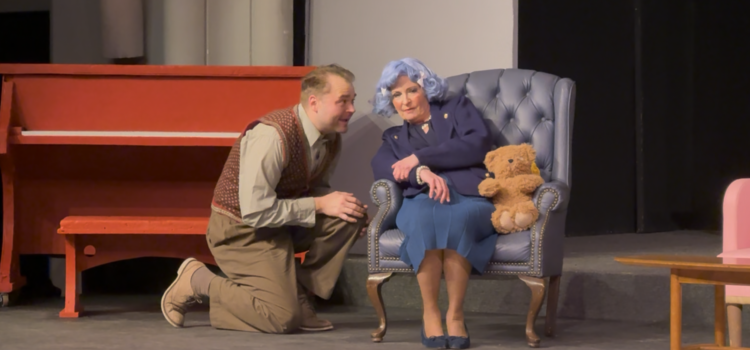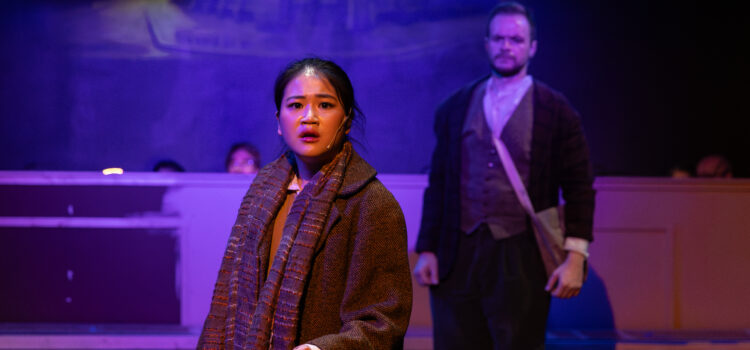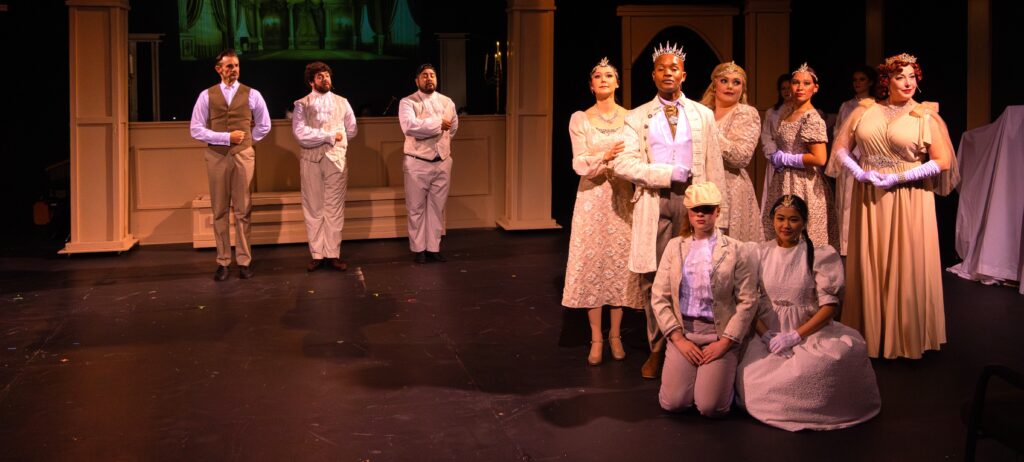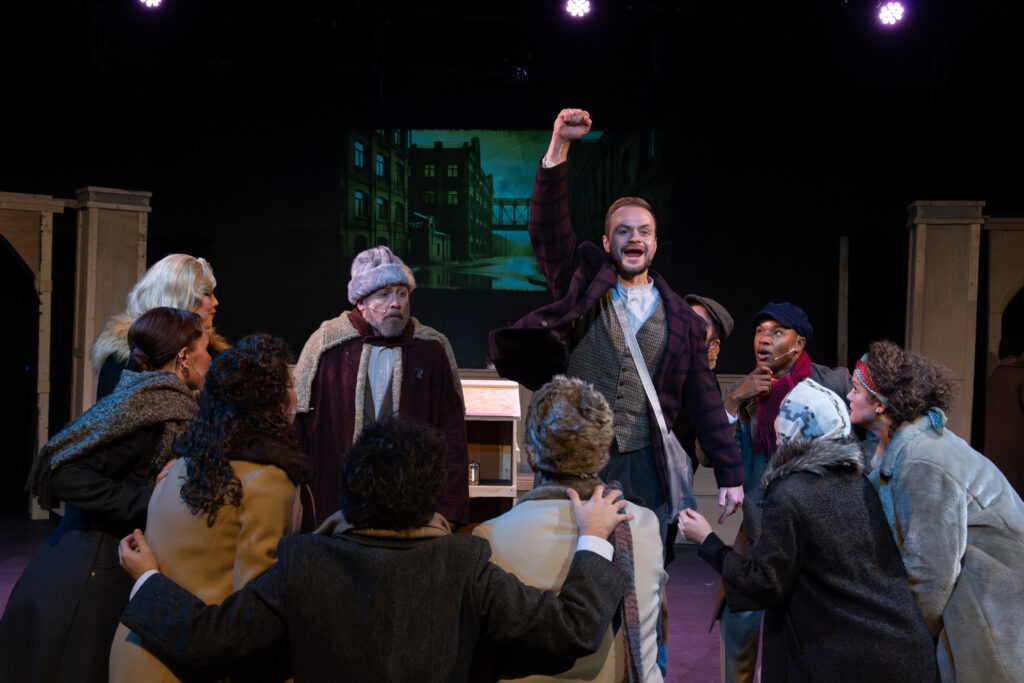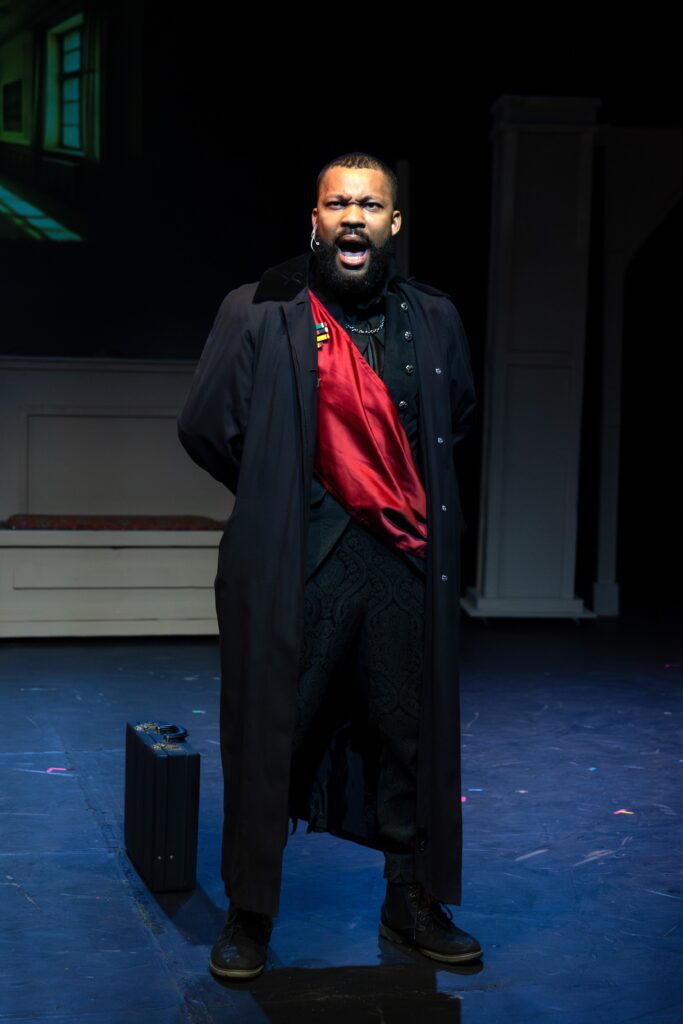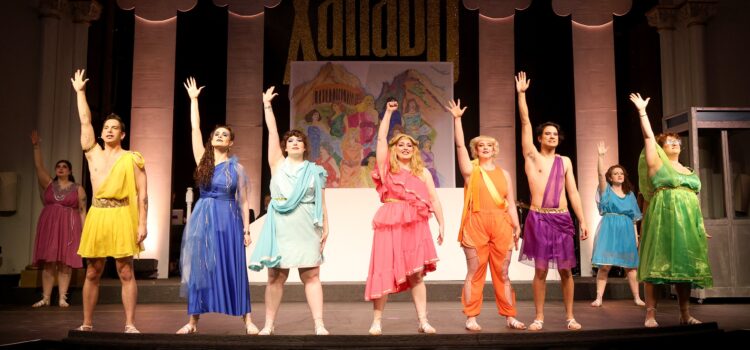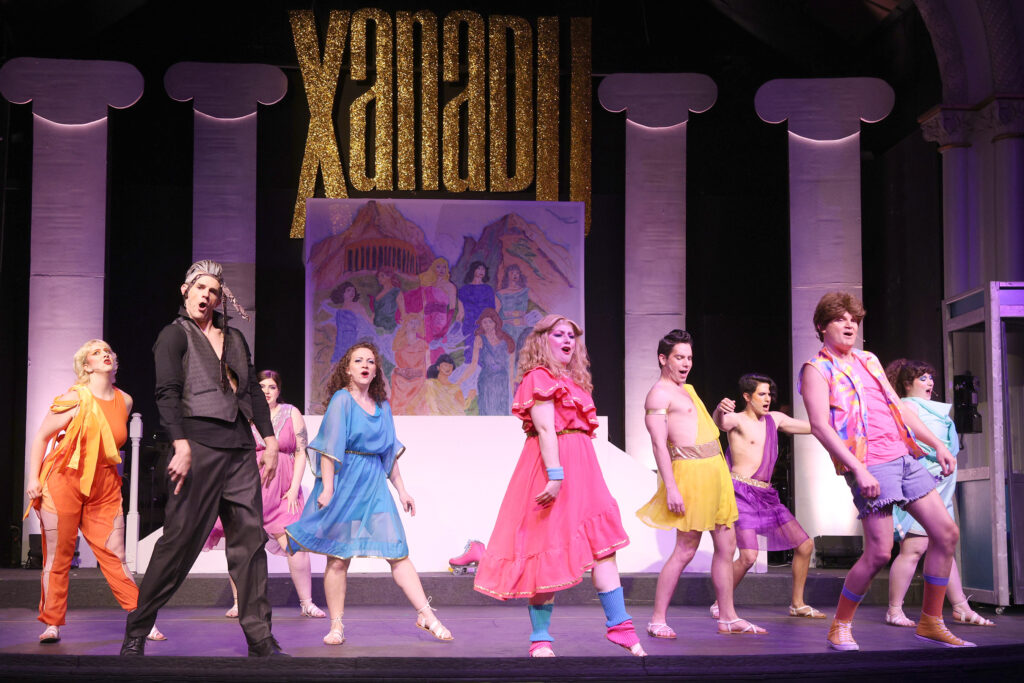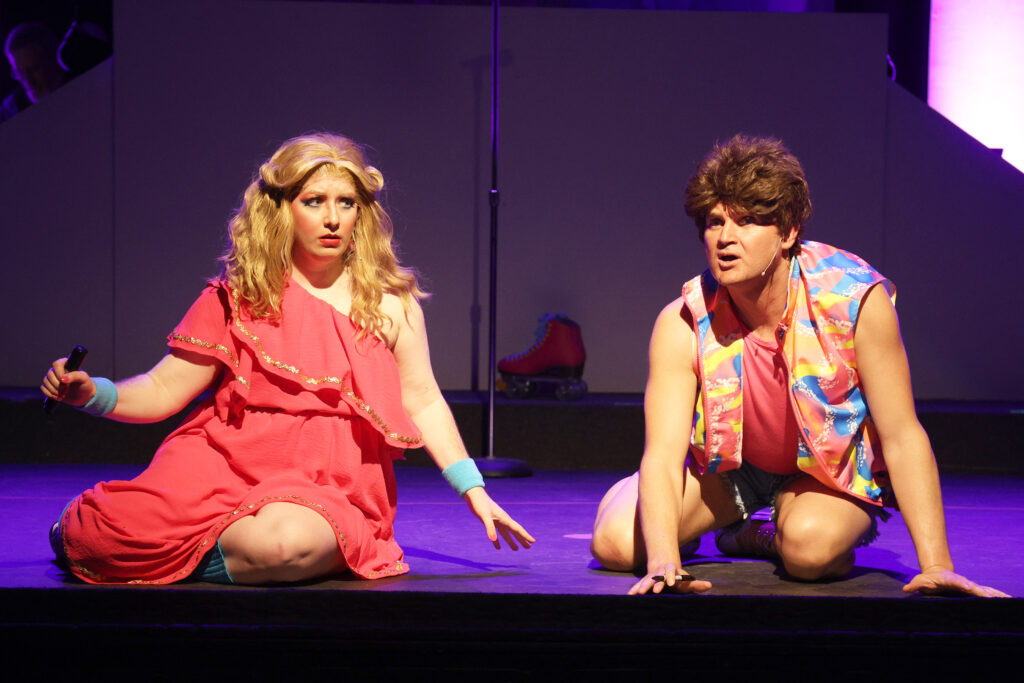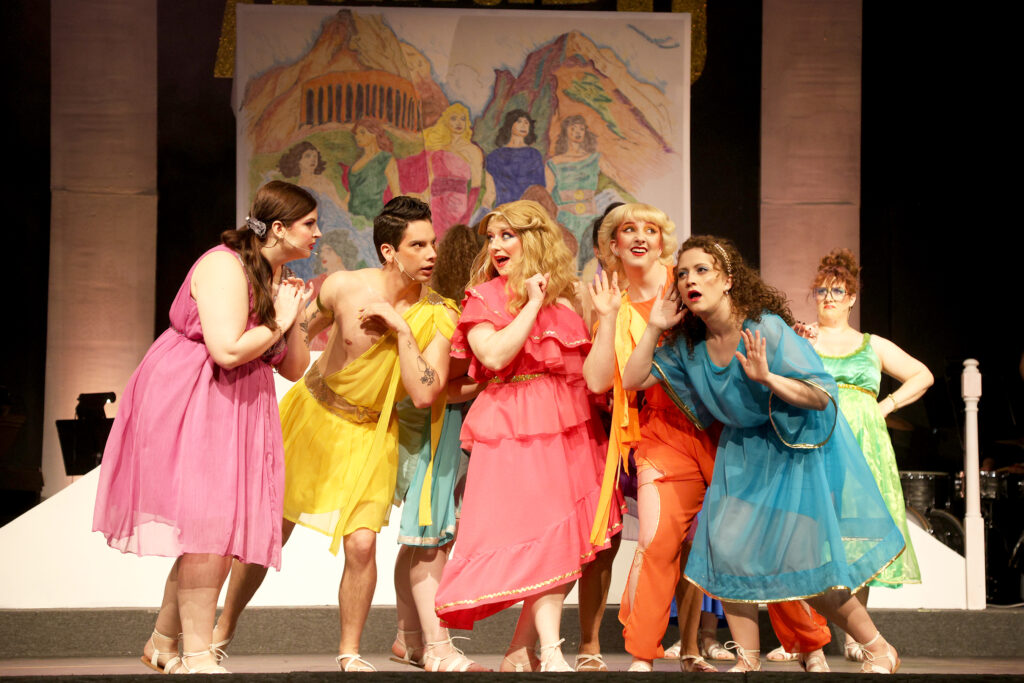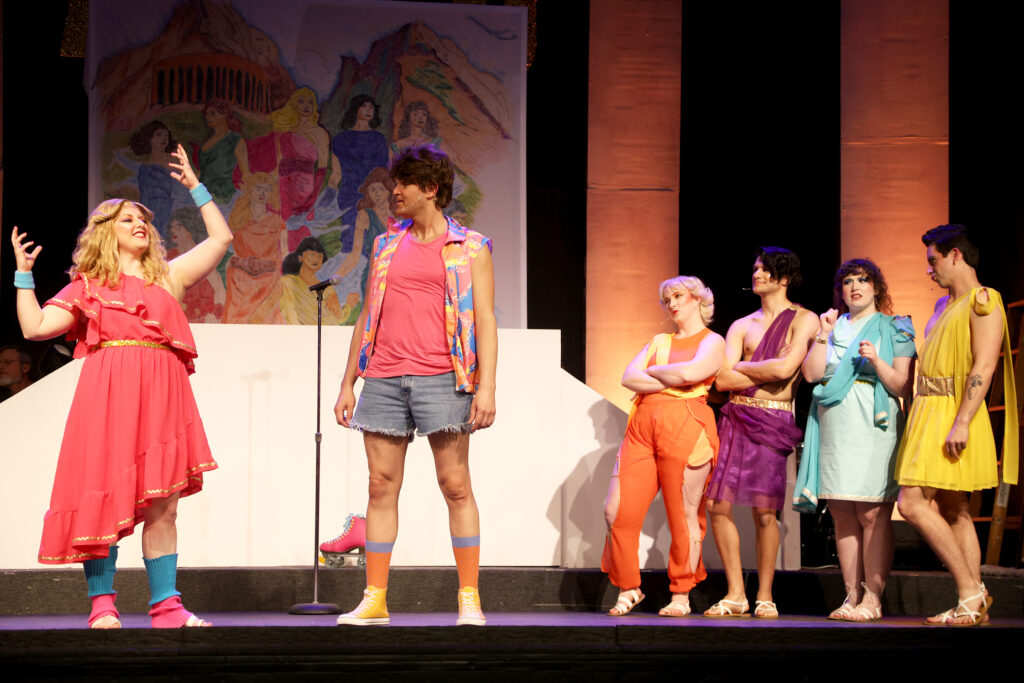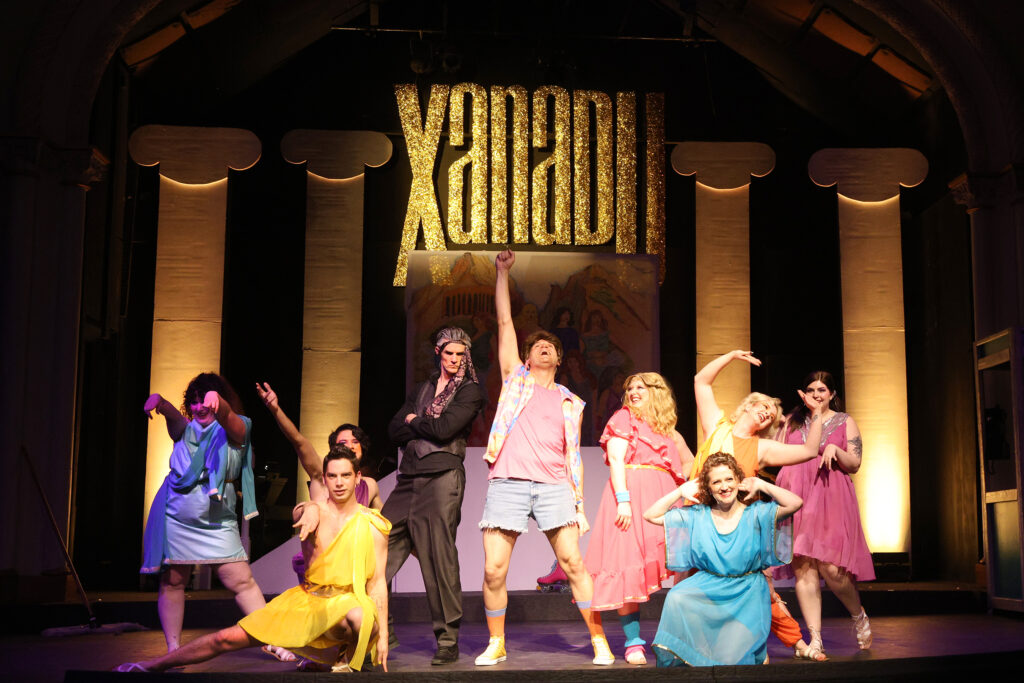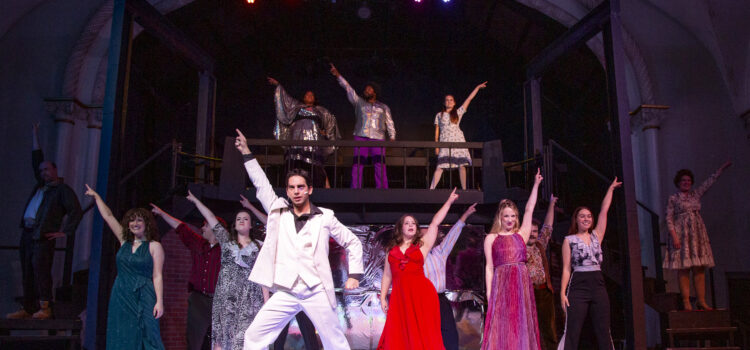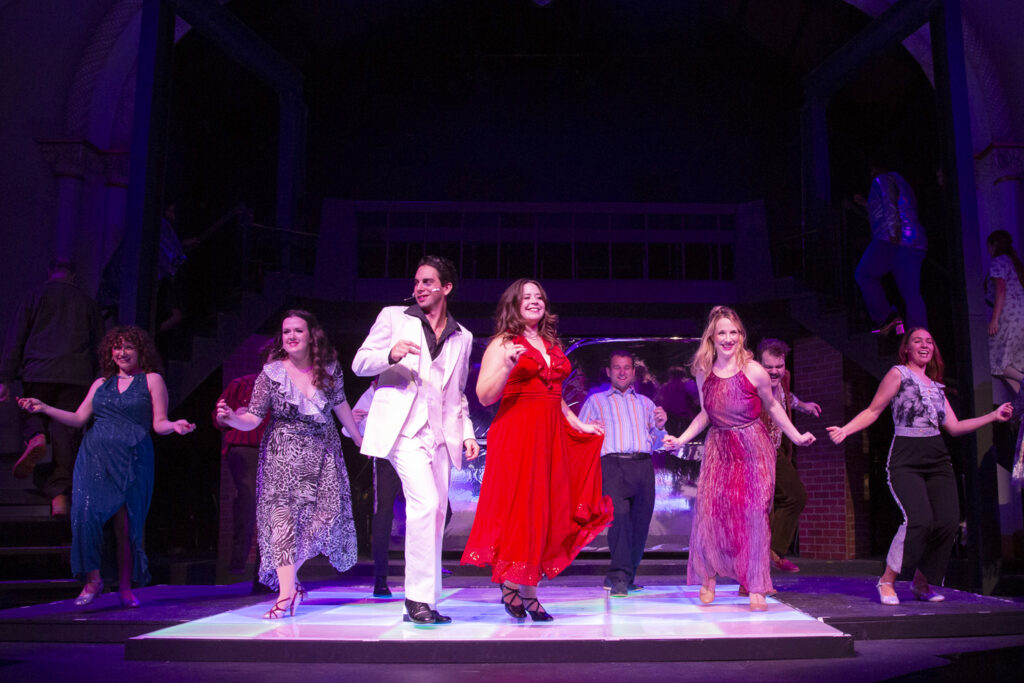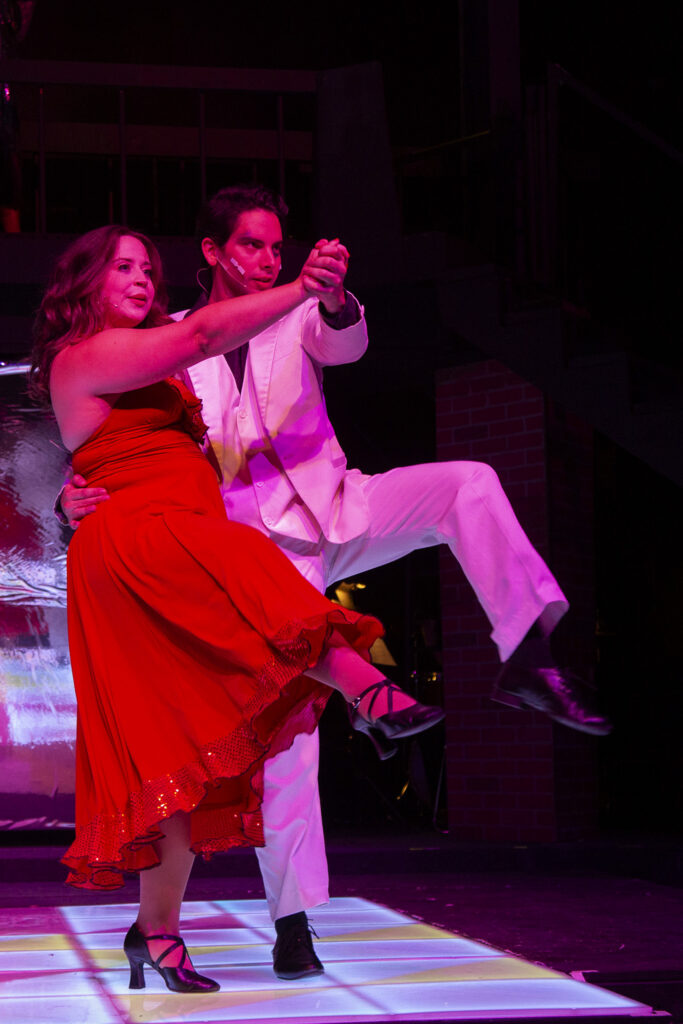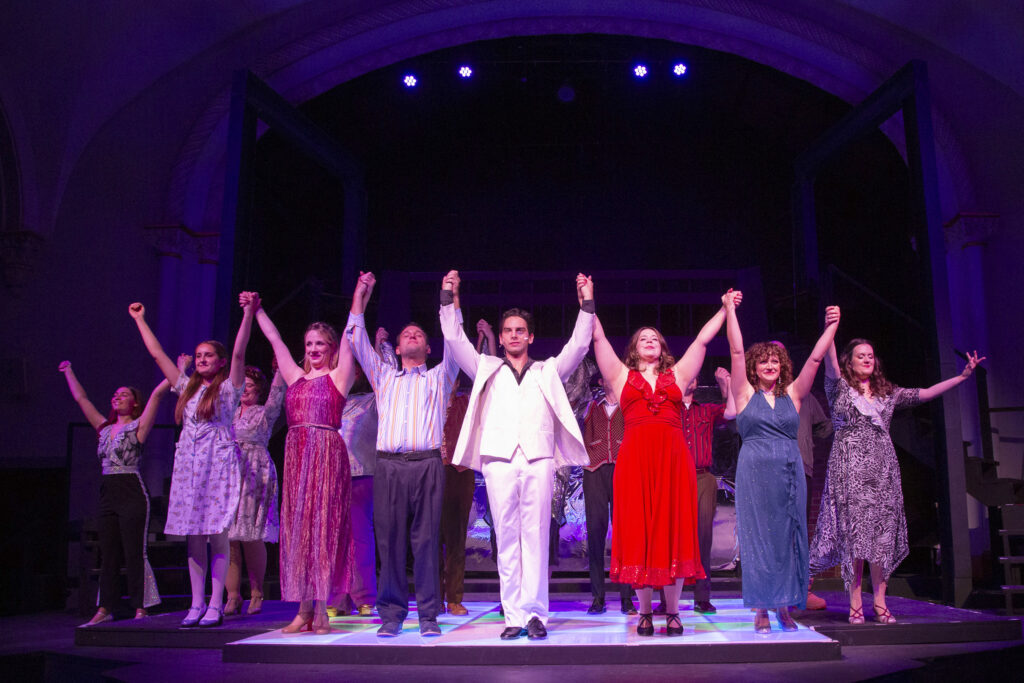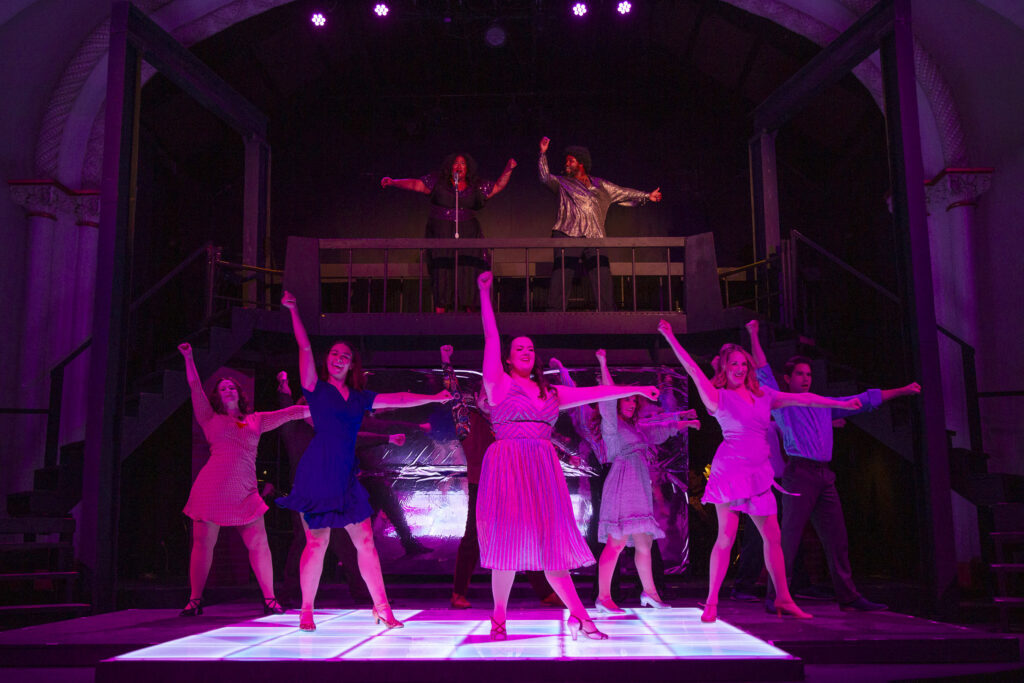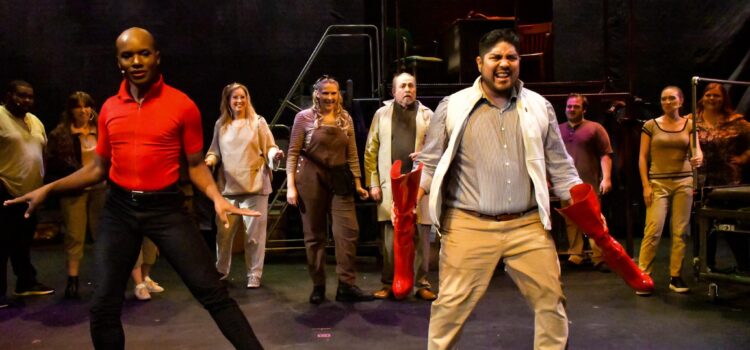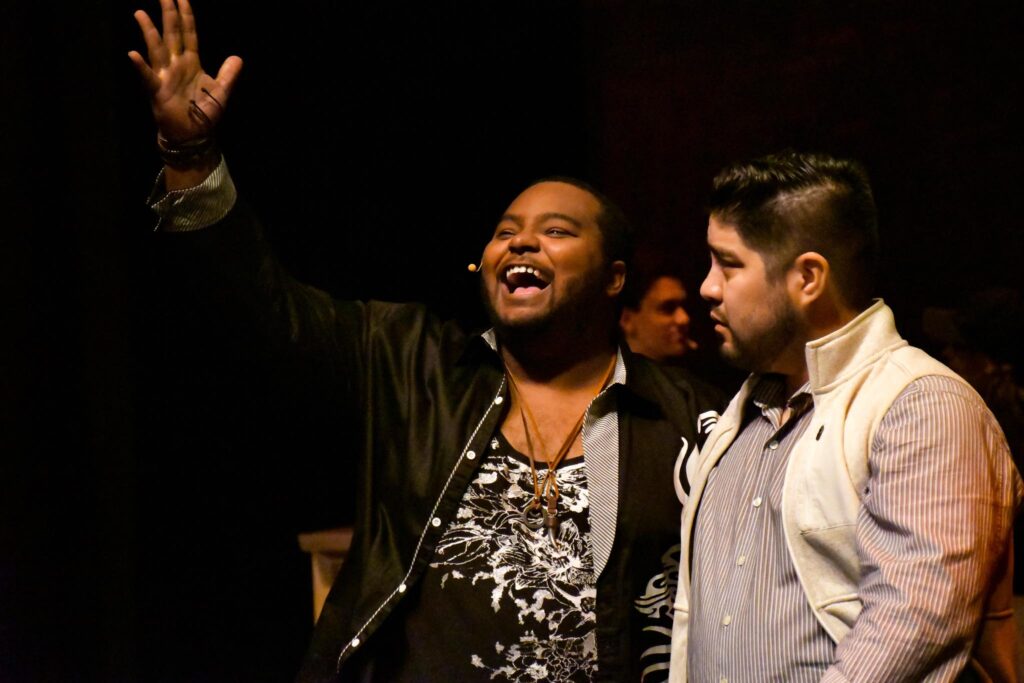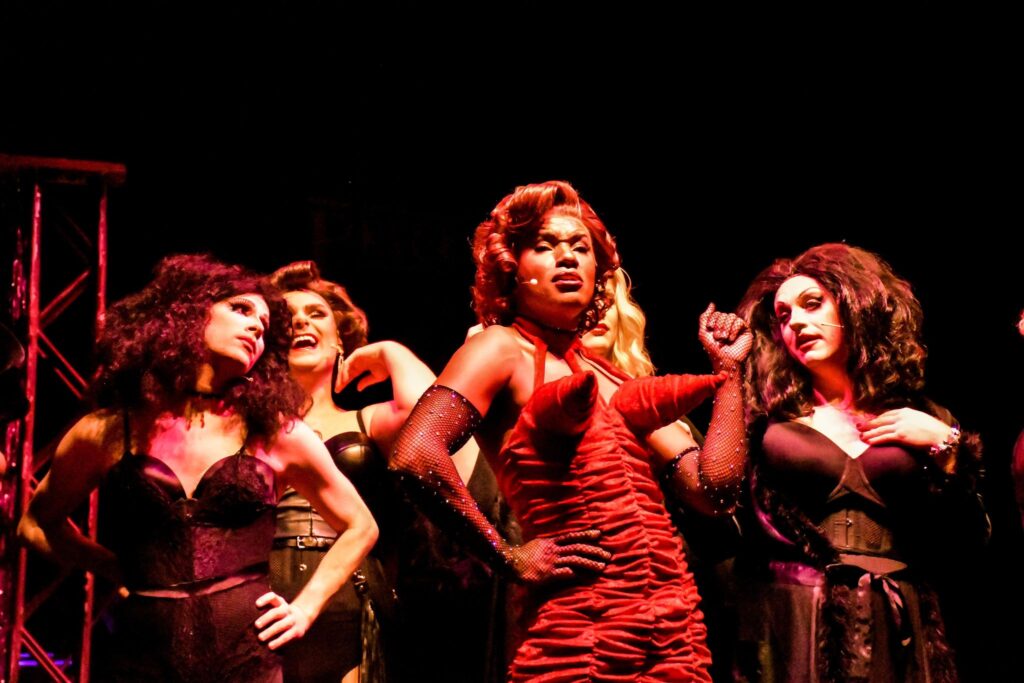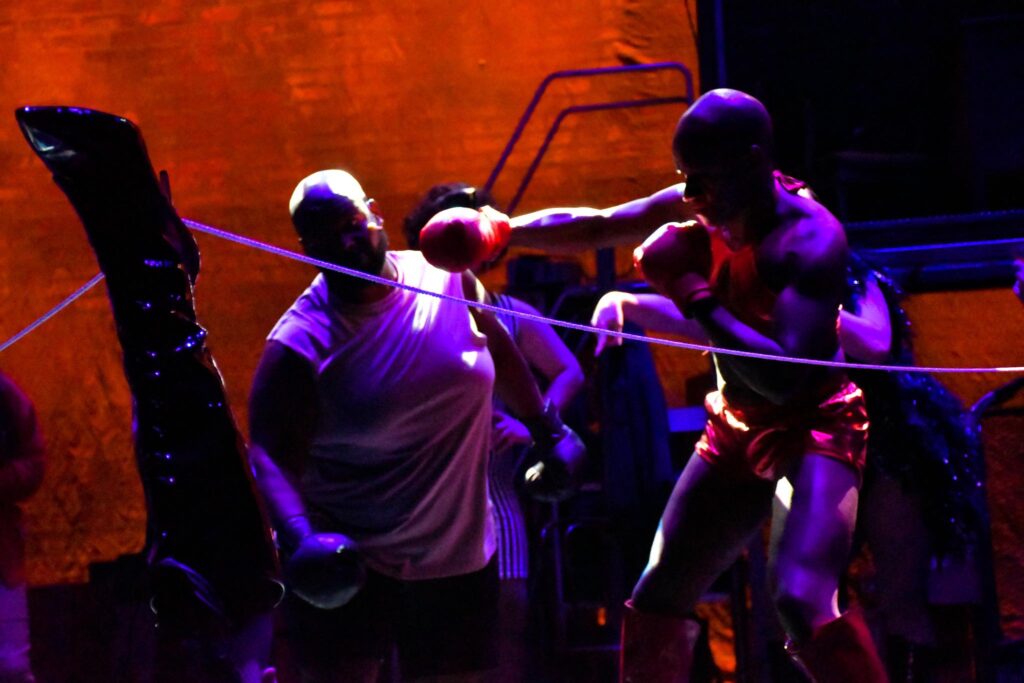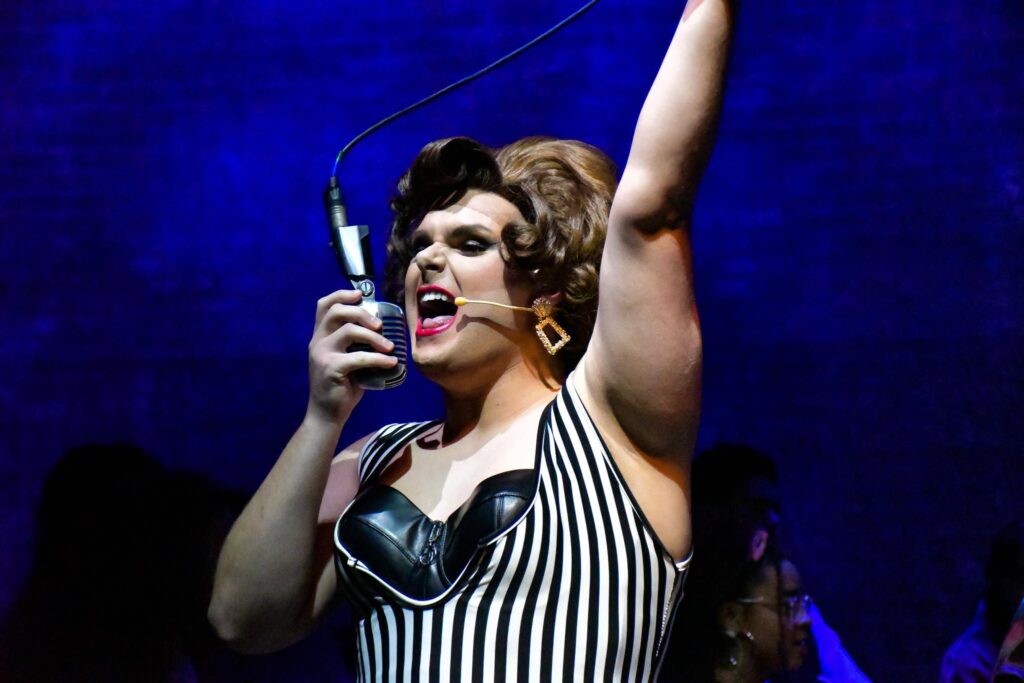By Lynn Venhaus
A sweet and tender-hearted foray into found families, “The Curious Savage” is brought to vivid life with warmth by an eclectic cast of 11 characters.
Reminiscent at times of the screwball antics of “You Can’t Take It with You,” this 1950 amiable comedy by playwright John Patrick kicks off Stray Dog Theatre’s season with a heartwarming effort.
Set in a live-in psychiatric center called The Cloisters, Ethel Savage has been placed there by her three awful stepchildren. Greedy, self-centered and rude, the trio are cartoonish villains played in over-the-top characterizations by seasoned pros Matt Anderson, Sarajane Clark and Joseph Garner, who have great fun being despicable.
Anderson is a condescending senator, Clark is a vain actress who has been married six times, and Garner is a haughty judge. All display degrees of entitlement and indignation, for they think their father’s second wife is mentally unstable. She inherited $10 million and wants to give it to people who want to pursue their dreams.
The bratty kids want the money for themselves, therefore, wreak havoc at the sanitarium by badgering her, bullying the staff and disrupting the fragile ecosystem among the patients.

In an amusing performance, Liz Mischel excels as a crazy-like-a-fox senior citizen, whose compassion and kindness is in stark contrast to her stepchildren’s demanding threats.
Ethel quickly ingratiates herself with the staff and the residents, and bonds form with the damaged/broken people whose mental trauma resulted in a sanitarium stay.
Director Gary F. Bell deftly directed this piece to bring out The Cloisters’ characters’ goodness and dignity, and the staff’s humanity. While what they say is often funny, they are not punchlines to any cruel jokes and are treated as individuals. The well-cast performers are convincing in portraying their characters’ issues, and they all gel as a satisfying ensemble.
Lindsey Grojean is delightful as the childlike Fairy May, who is unfiltered and funny, while Anne Vega is a caring mother, Florence, whose loss of her infant son caused a breakdown. She believes John Thomas is still alive.
Camille Fensterman is tormented Mrs. Paddy who professes to “hate everything” and delivers laundry lists of things she dislikes, but she doesn’t speak other than those litanies, only painting seascapes in a corner.
Tyler Cole plays a skittish World War II veteran Jeffrey, who was a pilot who survived a crash while all his men perished. He’s convinced he has a horrible facial scar and holds his hand to his face hiding it.
Gansner is helpful statistician Hannibal, who lost his job to an electronic calculator. He plays the violin, badly. The characters have personal quirks, such as Miss Paddy who gave up electricity for Lent, and is turning off the lights at inopportune times.
David Wassilak is Dr. Emmett, the matter-of-fact and fair doctor-administrator, while Claire Coffey is pleasant Miss Willie, who helps with patients. She also shares a secret.
Over the course of three acts, we are charmed by this smart, intuitive ensemble, portraying lovable characters with a great deal of heart, and the bad guys who are at their grumpiest and at times, histrionic. The joke is often on them.

The playwright has become a favorite of community and school theaters, and the most famous of his works is “The Teahouse of the August Moon,” which won a Pulitzer Prize for drama and a Tony Award for best play in 1954.
The only drawback to presenting a 75-year-old play is its outdated views on mental illness and mental health but does make strong points about the insanity on the outside that wields ugly power in society.
Think of it as a period piece, like the classic “Harvey” and other old chestnuts. Costumer Colleen Michelson has gathered frocks and casual attire from the 50s era, while dressing Lily Bell in scarlet dresses. As Ethel, Liz wears a dandy gaudy hat.
As is customary, Bell, as scenic designer, created a cozy interior on stage, while lighting designer Tyler Duenow and sound designer Justin Been enhanced the atmosphere.
A thoughtful and enjoyable approach to a heart-warming comedy, “The Curious Savage” is a comical kiss to kindness elevated by captivating performances.

Stray Dog Theatre presents “The Curious Savage” Thursdays through Saturdays at 8 p.m., Feb. 6-Feb. 22, with additional performances at 2 p.m. Sunday, Feb. 16, at Tower Grove Abbey, 2336 Tennessee Avenue, St. Louis. There are two 10-minute intermissions. For more information: www.straydogtheatre.org.

Lynn (Zipfel) Venhaus has had a continuous byline in St. Louis metro region publications since 1978. She writes features and news for Belleville News-Democrat and contributes to St. Louis magazine and other publications.
She is a Rotten Tomatoes-approved film critic, currently reviews films for Webster-Kirkwood Times and KTRS Radio, covers entertainment for PopLifeSTL.com and co-hosts podcast PopLifeSTL.com…Presents.
She is a member of Critics Choice Association, where she serves on the women’s and marketing committees; Alliance of Women Film Journalists; and on the board of the St. Louis Film Critics Association. She is a founding and board member of the St. Louis Theater Circle.
She is retired from teaching journalism/media as an adjunct college instructor.

